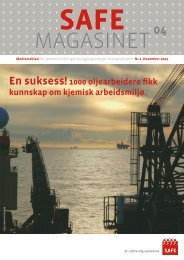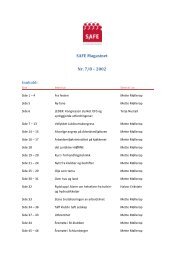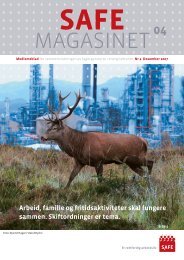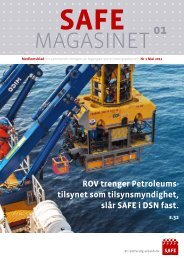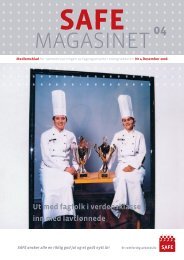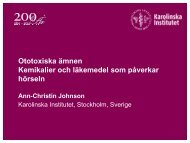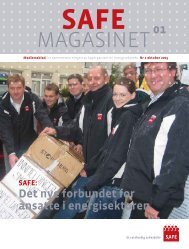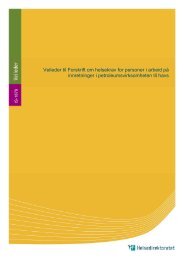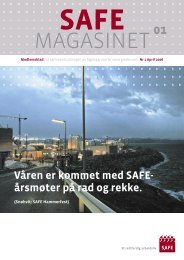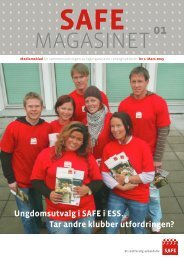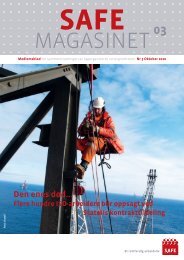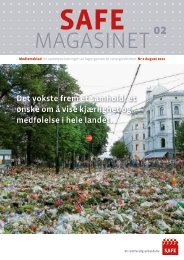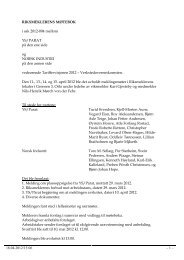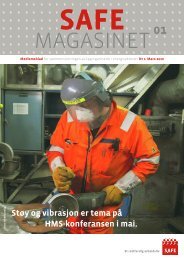Create successful ePaper yourself
Turn your PDF publications into a flip-book with our unique Google optimized e-Paper software.
community members.<br />
“There were times I thought it was an<br />
impossible task,” Richard recalled. “I<br />
remember standing in my yard thinking,<br />
‘Lord, will there ever be hope?’ But a<br />
little voice within me kept saying, ‘If we<br />
don’t tell them, how will they know?’”<br />
No More Shell Games<br />
In 2000, thanks largely to Richard’s<br />
efforts, Shell agreed to reduce its<br />
emissions by 30 percent and improve<br />
its emergency evacuation routes. Shell<br />
also agreed to pay voluntary relocation<br />
costs for residents who lived on the two<br />
streets closest to the plant. But Richard<br />
and Concerned Citizens turned up the<br />
heat, leading to a meeting at the Shell<br />
offices in Norco where they secured<br />
a $5 million community development<br />
fund and full relocation for all four Old<br />
Diamond streets. Since the agreement<br />
was brokered in 2002, Shell has bought<br />
about 200 of the 225 lots at a minimum<br />
price of $80,000 per lot.<br />
A Victory for Environmental Justice<br />
In addition to being the first community<br />
relocation victory of its kind in the Deep<br />
South, Richard’s success in Norco has<br />
been an inspiring example for activists<br />
nationwide battling environmental<br />
racism in their own backyards. People<br />
of color are more likely than whites to<br />
live near areas polluted by industrial<br />
plants; seventy-one percent of African-<br />
Americans live in counties that don’t<br />
meet federal air pollution standards. As<br />
a consequence, blacks suffer dispropor-<br />
tionately from respiratory and other<br />
environmental ailments, studies show.<br />
Community protest against these<br />
conditions has produced a uniquely<br />
American brand of activism that is equal<br />
parts civil rights and environmentalism.<br />
Richard stands at the forefront of this<br />
important social justice movement.<br />
“Every time we as black Americans<br />
stand up for what is right, they say<br />
it’s for greed of money. It’s a fight for<br />
longevity,” Richard has said. “If we don’t<br />
put a face to it, we can’t make change.<br />
Truth and justice for the betterment of<br />
life, the environment and government is<br />
the stairway to upward mobility.”<br />
Activist-At-Large<br />
After passing her presidency of<br />
Concerned Citizens to another member,<br />
Richard has become an activist-at-large.<br />
She continues to work with Shell on an<br />
initiative to improve community and<br />
environmental health and safety in<br />
Norco. She advises other communities<br />
battling corporate pollution including<br />
the African-American neighborhood of<br />
Westside in Port Arthur, Texas, which<br />
borders a refinery owned by Premcor,<br />
one of the nation’s largest independent<br />
oil refineries. Port Arthur has the<br />
highest rates of respiratory illness in<br />
the state; more than 20,000 children<br />
in the area are exposed to toxins that<br />
can cause cancer, learning disabilities<br />
and birth defects, according to a recent<br />
study.<br />
Richard’s activism has also taken her<br />
abroad. In 2002 she spoke at the World<br />
Summit on Sustainable Development<br />
and met with citizen groups in South<br />
Africa struggling with contamination<br />
from industrial run-off. This year, as<br />
in years past, she plans to help lead<br />
an international delegation to Royal<br />
Dutch/Shell’s annual general meeting<br />
(April 24-25) in London where she<br />
will pressure the corporation to take<br />
responsibility for its dirty industrial<br />
practices and the medical costs<br />
associated with treating environmental<br />
illness.<br />
“Whether she’s on the steps of the U.N.<br />
or in Nigeria, or in her own front yard,<br />
she is not intimidated by whatever<br />
circumstances she is faced with,”<br />
said Maura Wood of the Sierra Club’s<br />
regional office in Louisiana. “She<br />
37<br />
sets out to get the message of her<br />
community out to the world.”




